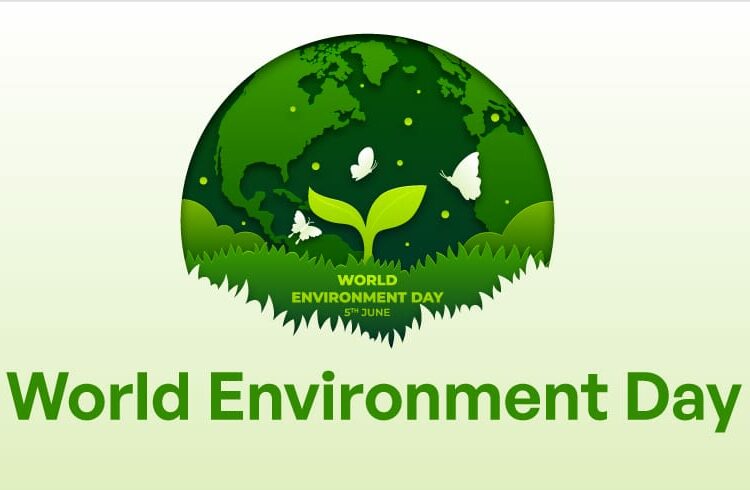This year’s commemoration of World Environment Day could not have come at a more critical moment for Nigeria, given the scale of environmental devastation the country continues to experience.
The theme for 2025, #BeatPlasticPollution, is particularly resonant. Plastic waste has permeated nearly every aspect of life, contaminating our water, food, and even our bodies. From oceans to farmlands, cities to rural areas, the menace of plastic pollution is now a global environmental emergency.
In his commemorative address, Minister of Environment Balarabe Abbas Lawal emphasised the urgent need for action, citing the destructive impact of plastic waste on both ecosystems and human health. He stressed the need to tackle climate change in tandem with other pressing challenges, including rapid population growth, deepening poverty, and persistent security threats.
While it is no longer news that the world is facing monumental environmental challenges due to climate change, what matters now is how urgently and effectively we respond.
According to the International Organisation for Migration (IOM), plastic pollution, from production to disposal, contributes directly to climate change and environmental degradation. It clogs waterways, contaminates soil, disrupts ecosystems, and is increasingly pushing communities to relocate in search of safer and more sustainable living conditions.
The United Nations reports that 500 billion plastic bags are used globally each year, and 13 million tonnes of plastic leak into the oceans annually. Every year, 17 million barrels of oil are consumed in plastic production, while one million plastic bottles are purchased every minute worldwide. An estimated 100,000 marine animals are killed by plastics each year. Alarmingly, plastic can take over a century to degrade in the environment. Studies have also shown that 90 percent of bottled water and 83 percent of tap water tested contain microplastic particles. Furthermore, half of all consumer plastics are single-use, and plastic accounts for 10 percent of all human-generated waste.
Worse still, microplastics – tiny, toxic particles that emerge as plastics break down – are now being found not only in water and soil but inside the human body. This is the tragic result of decades of overuse and overreliance on disposable plastics.
As the United Nations notes, plastic has revolutionised modern life. From medicine to transportation, construction to education, plastic has found its way into every sector. But the explosion of single-use plastics has led to an environmental catastrophe.
Most plastics remain intact for centuries. Those that degrade do so into harmful microplastics that enter the food chain through marine life. The result: a mounting global health and environmental crisis.
In Nigeria, environmental challenges are multifaceted. The country contends with the dual threats of flooding and drought, widespread pollution, and inefficient waste management – particularly of plastic waste. These problems are compounded by deforestation, land degradation, and the unchecked consequences of urbanisation.
For instance, on May 28 this year, the town of Mokwa in Niger State was submerged following heavy rainfall. Officials reported over 200 deaths, more than 1,000 people missing, 121 injured, and some 2,000 homes destroyed. This is only one of many such incidents across the country in recent years.
We must acknowledge, as minister of women affairs Hajiya Imaan Sulaiman-Ibrahim rightly pointed out, that the environmental crisis is displacing families, tearing communities apart, and disproportionately affecting women and children.
Food security will remain a pipe dream until serious, sustained action is taken to address the root causes of environmental degradation.
In 2021, the federal government introduced the National Policy on Plastic Waste Management (NPPWM) to reduce plastic waste and promote sustainable practices. However, apart from efforts by individual recyclers and informal waste pickers operating in cities and dump sites, the government’s implementation of this policy has been weak, if not negligible.
To truly beat plastic pollution, the world must, as UN General Assembly President Maria Fernanda Espinosa Garcés advised, “entirely rethink our approach to designing, producing, and using plastic products.” She called for sustainable behaviour change, global awareness, policy reform, and courageous leadership.
Notably, only two of Nigeria’s 36 states, Lagos and Ekiti. have taken bold policy action. Both have announced bans on single-use plastics, such as plastic bags and Styrofoam food containers, to reduce flooding, improve public health, and curb environmental degradation. These moves are commendable but far from sufficient.
In the legislative arm, chairman of the House Committee on Media and Public Affairs, Hon. Akin Rotimi, revealed that out of 899 bills passed by the House in its first two years, only 27 (just 3 per cent) focus on the environment. However, the House is reportedly considering stronger regulations to curb the proliferation of single-use plastics, especially in urban centres where the consequences are most visible.
As a newspaper, we strongly agree. Nigeria cannot afford to remain on the sidelines of this global struggle. This year’s World Environment Day must mark a turning point, not just in rhetoric but in policy, enforcement, and a national culture of environmental stewardship.





